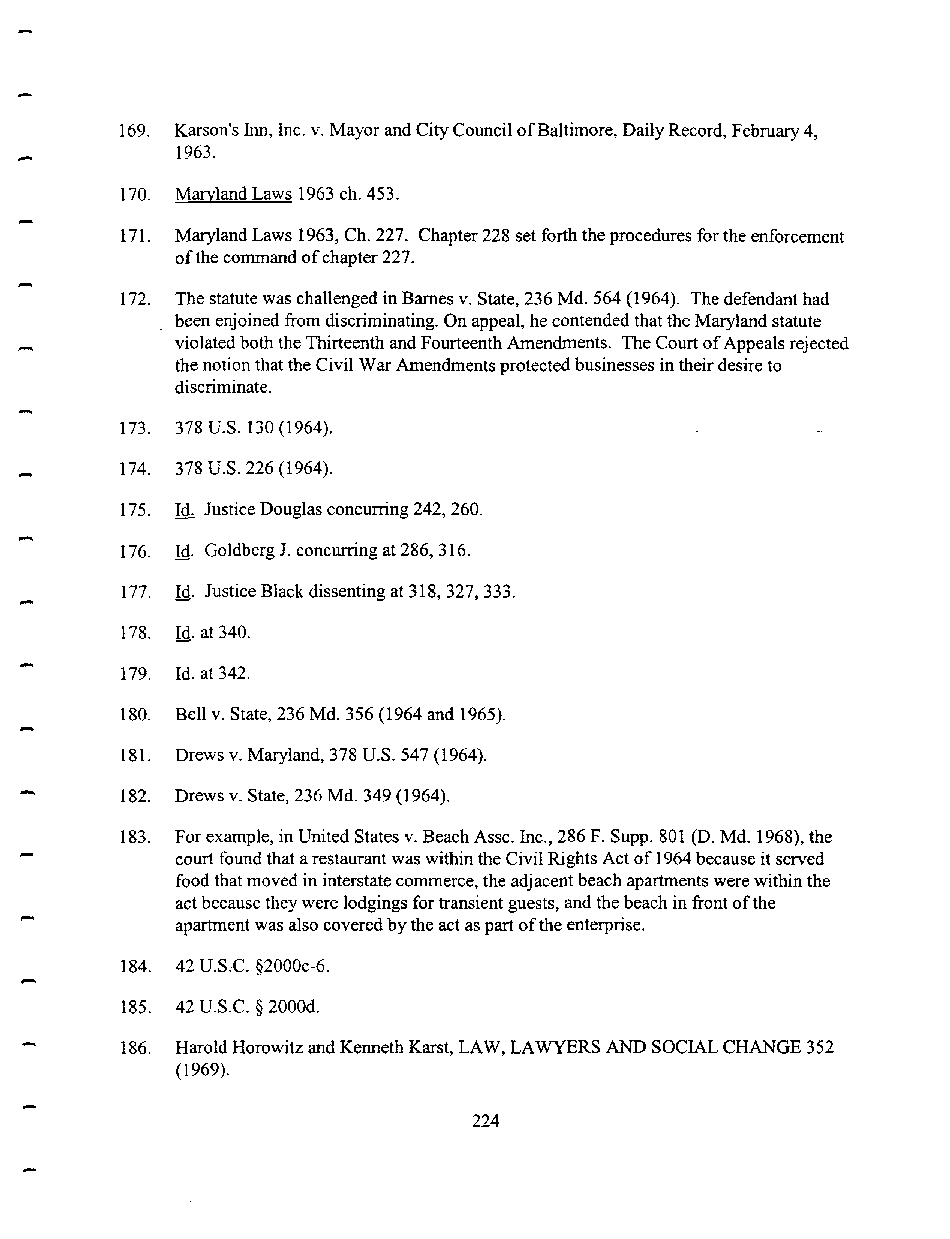|
169. Karson's Inn, Inc. v. Mayor and City Council of Baltimore, Daily Record, February 4,
1963.
170. Maryland Laws 1963 ch. 453.
171. Maryland Laws 1963, Ch. 227. Chapter 228 set forth the procedures for the enforcement
of the command of chapter 227.
172. The statute was challenged in Barnes v. State, 236 Md. 564 (1964). The defendant had
been enjoined from discriminating. On appeal, he contended that the Maryland statute
violated both the Thirteenth and Fourteenth Amendments. The Court of Appeals rejected
the notion that the Civil War Amendments protected businesses in their desire to
discriminate.
173. 378 U.S. 130(1964).
174. 378 U.S. 226(1964).
175. Id Justice Douglas concurring 242, 260.
176. Id. Goldberg J. concurring at 286, 316.
177. Id. Justice Black dissenting at 318, 327, 333.
178. Id. at 340.
179. Id. at 342.
180. Bell v. State, 236 Md. 356 (1964 and 1965).
181. Drews v. Maryland, 378 U.S. 547 (1964).
182. Drews v. State, 236 Md. 349 (1964).
183. For example, in United States v. Beach Assc. Inc., 286 F. Supp. 801 (D. Md. 1968), the
court found that a restaurant was within the Civil Rights Act of 1964 because it served
food that moved in interstate commerce, the adjacent beach apartments were within the
act because they were lodgings for transient guests, and the beach in front of the
apartment was also covered by the act as part of the enterprise.
184. 42 U.S.C. §2000c-6.
185. 42 U.S.C. § 2000d.
186. Harold Horowitz and Kenneth Karst, LAW, LAWYERS AND SOCIAL CHANGE 352
(1969).
224
�
|

